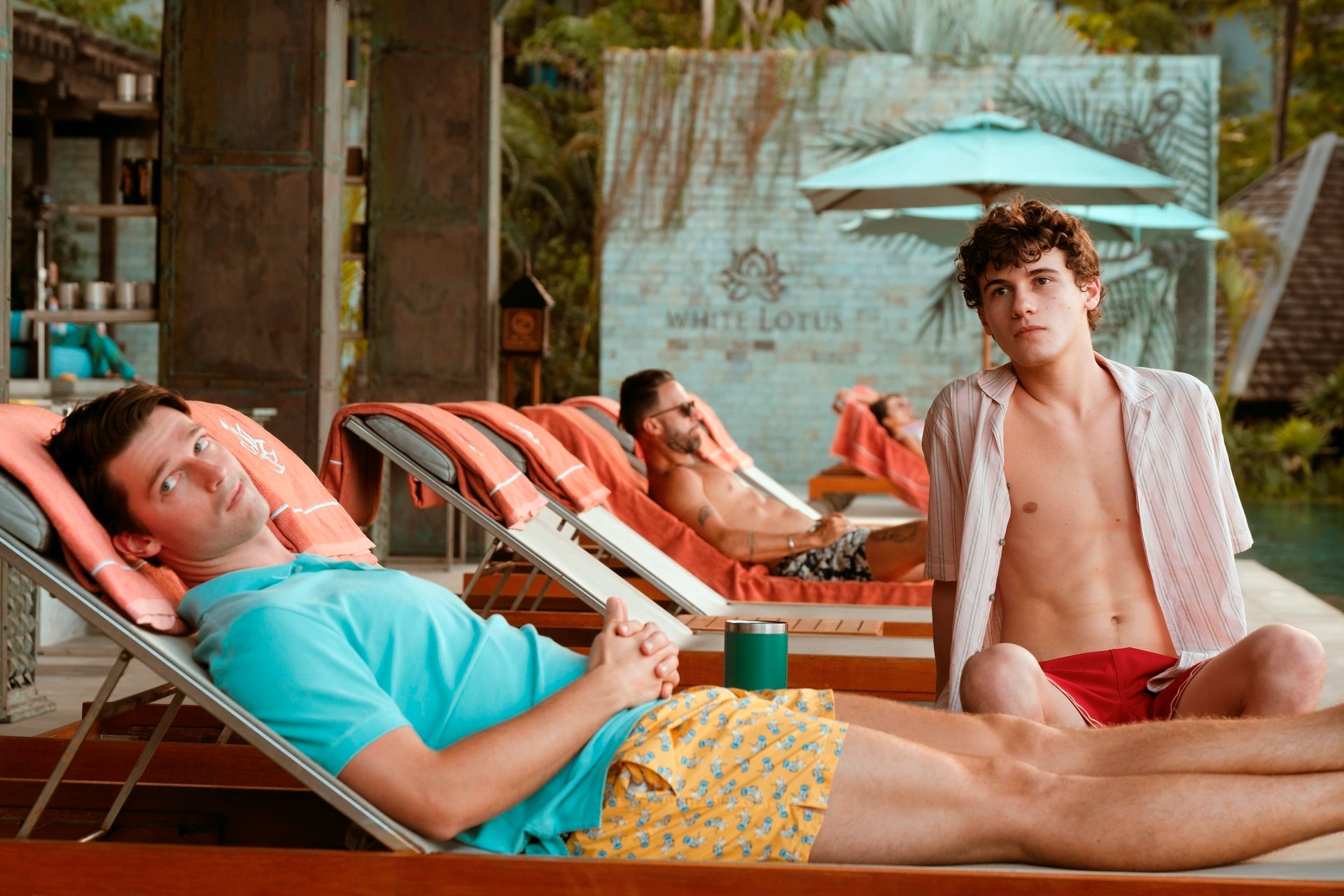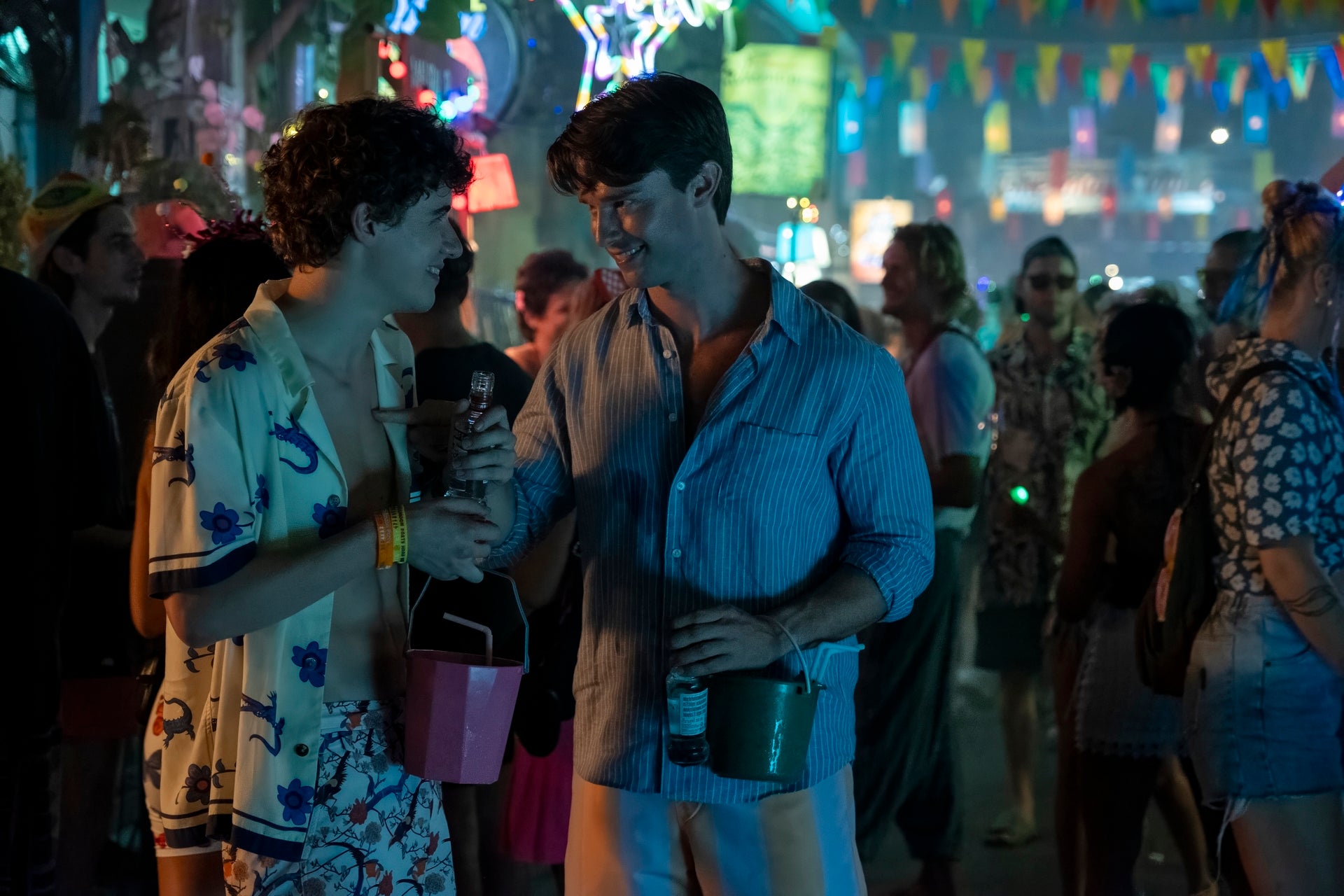This article contains spoilers for season three of The White Lotus
The White Lotus is a show where a lot of sex happens and many taboos are explored. For instance, in episode seven, the impact on one character of watching his parents having sex as a child and how that affected his sexuality is talked about. Given all of this, it might seem like no big deal to feature an incest storyline, which this series did. But, as researchers of sibling sexual behaviour-abuse, we were particularly perturbed by the show’s take on this issue.
In episode five, we see holidaying brothers Lochlan and Saxon Ratliff kiss after a night of partying with drugs and alcohol. This quickly escalates in the next episode, where Saxon learns through flashbacks and conversations that Lochlan “jerked [him] off.”
Child sexual abuse, harmful sexual behaviour among children and young people and intra-familial sexual abuse are not new topics. It’s only recently, however, that sibling sexual behaviour-abuse has garnered similar levels of attention.
While this topic does come under the definition of intra-familial sexual abuse, conversations about this have tended to focus on intergenerational cases. For instance, parent or step-parent and child.
However, sibling sexual behaviour-abuse is thought to be one of the most prolific forms of intrafamilial sexual abuse. Research estimates that it may be five times more prevalent than parent-child sexual abuse, yet is rarely spoken about due to the taboos that exist around children and sex – but also the shame that many families feel when experiencing this issue.

Mainstream explorations on shows such as White Lotus could be incredibly helpful in spreading awareness about sibling sexual behaviour-abuse. As experts in sexual behaviours and sexual abuse, we believe the show’s handling of an incredibly complex and traumatic issue is insensitive and sensational. Far from spreading awareness, this storyline is simply shocking and inaccurate. We would argue that it actively harms the important research that is only just beginning in helping those who experience this sort of abuse and those who work with them.
Take the way Saxon finds out. It’s the next morning. He had blacked out the night before and fragments of what happened are slowly coming back to him. He suspects something bad happened but confirmation is delivered in a matter-of-fact way by the two young women who were with him that night.
Rather than expressing horror or concern, both young women are very calm about what happened, letting him know his brother “jerked him off”. They then laugh and are dismissive of Saxon’s horror. In this way, the abuse is normalised as one of them says: “Everyone has their thing – it’s fine.” This would seem to imply that sexual behaviour between siblings is a sexual preference rather than a traumatic situation that needs specific support and intervention.
While Saxon and Lochlan express disgust when they remember what has happened, this is not portrayed in any great depth. Instead, it is framed in a way that is not too dissimilar to how someone may respond to a consensual sexual encounter they may regret after a night out – rather than a serious sexual experience with a sibling.
In our research, we found a key reason why people don’t report instances is that the behaviour may sit within a context of family dysfunction, so it is difficult for those victims to recognise it. This is why early developmentally appropriate relationships and sex education is important.
Serious family dysfunction is evident within the programme with the mother showing disconnection and the father exhibiting signs of depression, suicide ideation and fantasies of killing members of his family. The children also have unusual relationships with each other where boundaries of sexuality are blurred.

In episode one, Saxon states: “Brother and sisters don’t sleep together when they have fully formed genitals.” Later, he calls his sister “pretty hot” and muses about her virginity. He also asks Lochlan, “What kind of porn do you like?” and says, “How am I going to jerk off with you in here all week?” before walking naked to the bathroom to masturbate.
The deep shame that is strongly linked to families that experience such abuse is also was not explored in any depth. After the initial act and flashbacks the sibling sexual behaviour is not mentioned in any great depth again.
The only real acknowledgement we get is in the final episode when Saxon rebuffs Lochlan’s wishes to spend time together. Noticing Saxon is not OK, Lochlan says: “All you care about is getting off and I saw you lying there and I thought you looked a little left out … and you know, I’m a pleaser. I just want to give everyone what they want and I’m in a family full of narcissists.”
This complicated family dynamic is not explored and the abusive behaviour isn’t even properly condemned. “Dude, let’s just drop this forever, please,” Saxon simply retorts – and the series does, as the incident is swept away as a small sub-plot, and lost in rising tide of drama in the rest of the finale.
TV shows can be incredibly powerful tools in spreading awareness and increasing public knowledge about how to spot, respond to and prevent issues such as sibling sexual behaviour-abuse. It could have explored the nature of the behaviour, the links to family factors and the interventions that are needed to support disclosures and recovery from this type of sexual abuse and behaviour-based family issue.
The White Lotus, however, did not take this opportunity. Instead, we are left guessing, as the Ratliffs sail back to their lives, how this complex and traumatic incident in the brothers’ lives came to pass and how it will affect them in the future.
Sophie King-Hill is an Associate Professor at the Health Services Management Centre at the University of Birmingham. Kieran McCartan is a Professor in Criminology at the University of the West of England.
This article is republished from The Conversation under a Creative Commons license. Read the original article.
Rape Crisis offers support for those affected by rape and sexual abuse. You can call them on 0808 802 9999 in England and Wales, 0808 801 0302 in Scotland, and 0800 0246 991 in Northern Ireland, or visit their website at www.rapecrisis.org.uk. If you are in the US, you can call Rainn on 800-656-HOPE (4673)







